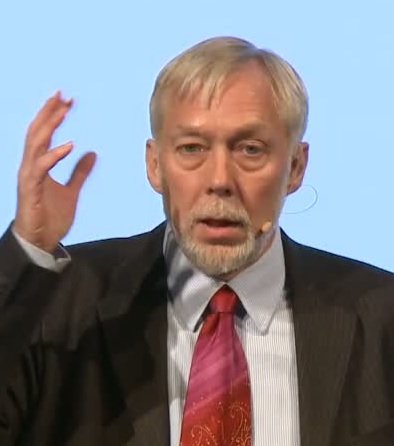Line 18:
}}
'''Roy Frederick Baumeister'''<ref>{{cite journal | pmc=10319136 | date=2023 | last1=Russo-Netzer | first1=P. | last2=Hicks | first2=J. | title=Editorial: Meaning in everyday life: Working, playing, consuming, and more | journal=Frontiers in Psychology | volume=14 | doi=10.3389/fpsyg.2023.1221799 | pmid=37408961 | doi-access=free }}</ref> ({{IPAc-en|ˈ|b|aʊ|m|aɪ|s|t|ər}}; born May 16, 1953) is an American [[Social psychology|social psychologist]] who is known for his work on the [[self (psychology)|self]], [[social rejection]], [[belongingness]], [[sexuality]] and sex differences, self-control, [[self-esteem]], self-defeating behaviors, [[motivation]], [[aggression]], [[consciousness]], and [[free will]].
== Education and academia ==
Line 110:
===Free will===
Baumeister approaches the topic of [[free will]] from the view-point of [[evolutionary psychology]]. He has listed the major aspects that make up free will as self-control, rational, intelligent choice, planful behavior, and autonomous initiative.<ref>Stillman, T. F., Baumeister, R. F., & Mele, A. R. (2011). Free will in everyday life: Autobiographical accounts of free and unfree actions. Philosophical Psychology, 24(3), 381-394</ref> Baumeister proposes that "the defining thrust of human psychological evolution was selection in favor of cultural capability" <ref>Baumeister, R. (2008). Free will in scientific psychology. Perspectives On Psychological Science, 3(1), 14-19.</ref> and that these four psychological capabilities evolved to help humans function in the context of culture. In his view, free will is an advanced form of action control that allows humans to act in pro-social ways towards their [[enlightened self-interest]] when acting in these ways would otherwise be in conflict with the fulfillment of evolutionarily older drives or instincts.<ref>Baumeister, R. F., Crescioni, A., & Alquist, J. L. (2011). Free will as advanced action control for human social life and culture. Neuroethics, 4(1), 1-11</ref> However, free will is contradictory to the idea of self-interest. Research by Baumeister and colleagues (principally [[Kathleen Vohs]]) has shown that disbelief in free will can lead people to act in ways that are harmful to themselves and society, such as cheating on a test, increased aggression, decreased helpfulness, lower achievement levels in the workplace, and possible barriers to beating addiction.<ref>Vohs, K. D., & Schooler, J. W. (2008). The value of believing in free will: Encouraging a belief in determinism increases cheating. Psychological Science, 19(1), 49-54.</ref><ref>Baumeister, R. F., Masicampo, E. J., & DeWall, C. (2009). Prosocial benefits of feeling free: Disbelief in free will increases aggression and reduces helpfulness. Personality And Social Psychology Bulletin, 35(2), 260-268.</ref><ref>Stillman, T. F., Baumeister, R. F., Vohs, K. D., Lambert, N. M., Fincham, F. D., & Brewer, L. E. (2010). Personal philosophy and personnel achievement: Belief in free will predicts better job performance. Social Psychological And Personality Science, 1(1), 43-50.</ref><ref>Vohs, K. D., & Baumeister, R. F. (2009). Addiction and free will. Addiction Research & Theory, 17(3), 231-235.</ref> However, although initial studies suggested that believing in free will is associated with more morally praiseworthy behavior, some recent studies have reported contradictory findings.<ref>{{cite journal|last1=Monroe|first1=Andrew E.|last2=Brady|first2=Garrett L.|last3=Malle|first3=Bertram F.|title=This Isn't the Free Will Worth Looking For|journal=Social Psychological and Personality Science|date=21 September 2016|volume=8|issue=2|pages=191–199|doi=10.1177/1948550616667616|s2cid=152011660}}</ref><ref>{{cite journal|last1=Crone|first1=Damien L.|last2=Levy|first2=Neil L.|title=Are Free Will Believers Nicer People? (Four Studies Suggest Not)|journal=Social Psychological and Personality Science|volume=10|issue=5|date=28 June 2018|pages=612–619|doi=10.1177/1948550618780732|pmid=31249653|pmc=6542011|doi-access=free}}</ref><ref>{{cite journal|last1=Caspar|first1=Emilie A.|last2=Vuillaume|first2=Laurène|last3=Magalhães De Saldanha da Gama|first3=Pedro A.|last4=Cleeremans|first4=Axel|title=The Influence of (Dis)belief in Free Will on Immoral Behavior|journal=Frontiers in Psychology|date=17 January 2017|volume=8|pages=20|doi=10.3389/FPSYG.2017.00020|pmid=28144228|pmc=5239816|doi-access=free}}</ref>
===Erotic plasticity===
Line 135:
* ''Homo Prospectus'' (2016).
* ''The Power of Bad'', co-written with [[John Tierney (journalist)|John Tierney]], (2019).
*: [[Martin Seligman]] called it "The most important book at the borderland of psychology and politics that I have ever read."
* ''The Self Explained. Why and How We Become Who We Are'', (2021)
=== Books edited ===
|
 Article Images
Article Images